Discover the symptoms, root causes, and science-backed treatments for Leaky Gut Syndrome. Learn when to seek help and how to manage it effectively.
Overview
Have you experienced persistent digestive issues alongside seemingly unrelated problems like skin rashes or fatigue? Leaky gut syndrome, also increasingly referred to as increased intestinal permeability, might be the underlying factor. This condition occurs when the tight junctions in the lining of your small intestine become compromised, allowing larger molecules like undigested food particles, bacteria, and toxins to pass into the bloodstream. A 2023 study published in the Journal of Translational Autoimmunity estimated that increased intestinal permeability may play a role in the development or progression of various chronic conditions affecting a significant portion of the adult population. Understanding leaky gut syndrome is crucial for those experiencing these mystery symptoms.
Symptoms of Leaky Gut Syndrome
- Chronic bloating and gas
- Food sensitivities or intolerances
- Fatigue and low energy
- Skin issues like eczema or acne
- Joint pain
When to See a Doctor
It’s important to consult a healthcare professional if you experience persistent digestive symptoms, especially if they are accompanied by other systemic issues like unexplained fatigue, skin problems, or joint pain. While many conditions can cause these symptoms, a doctor can help determine if leaky gut syndrome or another underlying issue is the cause. Seek medical advice for proper diagnosis and a personalized treatment plan. Early identification and management of leaky gut syndrome may help prevent potential complications. Also Read…..
Causes of Leaky Gut Syndrome
Biological Causes
The intestinal lining is a single layer of cells connected by tight junctions that control what passes from the gut into the bloodstream. Biological factors that can compromise these junctions include intestinal inflammation, often triggered by imbalances in the gut microbiota (dysbiosis). Research from the National Institute of Allergy and Infectious Diseases (NIAID) has highlighted the complex interplay between the gut microbiome and the intestinal barrier function. Genetic predisposition may also play a role in an individual’s susceptibility to developing increased intestinal permeability.
Certain lifestyle factors can significantly impact the integrity of the gut lining. A diet high in processed foods, refined sugars, and unhealthy fats can promote inflammation and disrupt the balance of gut bacteria. Chronic stress can also negatively affect the gut-brain axis, leading to increased intestinal permeability. Excessive alcohol consumption and the overuse of certain medications, such as non-steroidal anti-inflammatory drugs (NSAIDs), are also known triggers for damaging the intestinal lining. Addressing these lifestyle factors is often a key component in managing leaky gut syndrome.
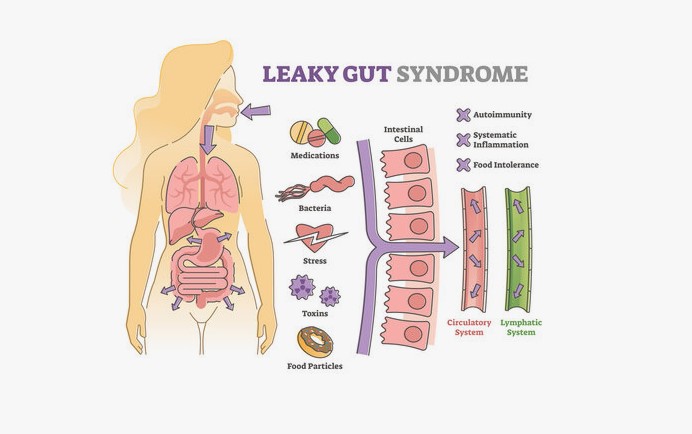
Risk Factors
Several factors can increase an individual’s risk of developing leaky gut syndrome. Individuals with pre-existing digestive disorders like irritable bowel syndrome (IBS) or inflammatory bowel disease (IBD) are often more susceptible. Chronic stress, as mentioned earlier, is a significant risk factor. A history of antibiotic use can disrupt the gut microbiome, potentially leading to increased permeability. Poor diet, characterized by high intake of processed foods and low fiber, also elevates the risk. Additionally, individuals with autoimmune conditions may have a higher prevalence of leaky gut syndrome, suggesting a potential link between gut health and autoimmune responses.
Complications
If left unaddressed, Leaky Gut Syndrome may contribute to a range of complications. The passage of larger molecules into the bloodstream can trigger systemic inflammation, potentially contributing to chronic diseases. It is hypothesized that this increased permeability can exacerbate food sensitivities and allergies as the immune system reacts to undigested food particles. There is also growing research exploring the link between leaky gut syndrome and autoimmune disorders, where the body’s immune system mistakenly attacks its own tissues. Furthermore, nutrient malabsorption can occur if the damaged gut lining is unable to properly absorb essential vitamins and minerals.
Diagnosis
Diagnosing leaky gut syndrome can be challenging, as there isn’t one single definitive test. However, healthcare practitioners may utilize several diagnostic approaches:
- Zonulin Testing: Zonulin is a protein that regulates the tight junctions in the intestinal lining. Elevated levels in stool or blood samples may indicate increased intestinal permeability.
- Intestinal Permeability Testing (Lactulose/Mannitol Test): This test involves drinking a solution containing two sugars, lactulose and mannitol, which are absorbed differently by the gut lining. The levels of these sugars in urine samples collected over several hours can provide insights into gut permeability.
- Comprehensive Stool Analysis: This test can assess the composition of the gut microbiome, identify potential imbalances (dysbiosis), and detect markers of inflammation, which can indirectly suggest increased intestinal permeability.
Treatment Options
Treatment for leaky gut syndrome typically involves a multi-faceted approach aimed at healing the gut lining and restoring a healthy gut microbiome.
- Dietary Modifications: Following an elimination diet to identify and remove trigger foods (e.g., gluten, dairy, processed foods) and focusing on a nutrient-dense diet rich in fruits, vegetables, lean proteins, and healthy fats is often the first step.
- Supplementation: Certain supplements may help support gut health, including probiotics to restore beneficial gut bacteria, L-glutamine to help repair the intestinal lining, and digestive enzymes to aid in proper food breakdown.
- Stress Management: Implementing stress-reducing techniques such as yoga, meditation, or deep breathing exercises can positively impact the gut-brain axis and reduce inflammation.
- Medications: In some cases, medications to manage underlying conditions like inflammation or infections may be necessary. For more information on supporting gut health naturally, explore our guide on /natural-remedies-for-leaky-gut. Also Read>>>>

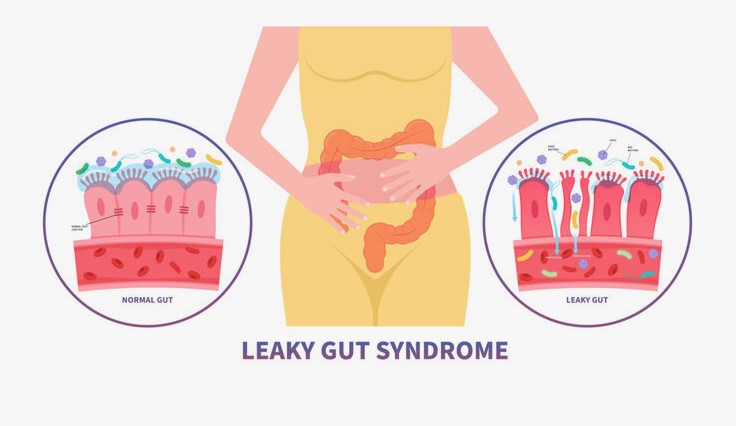
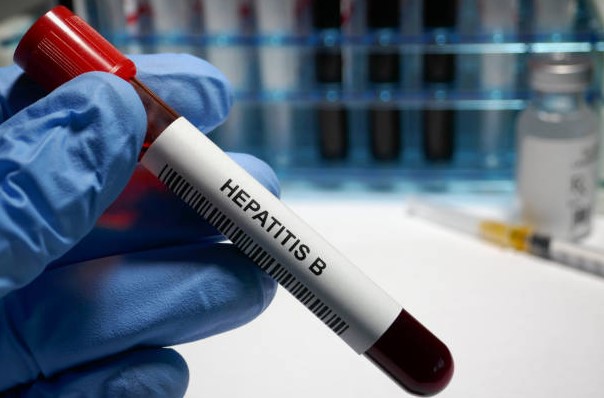
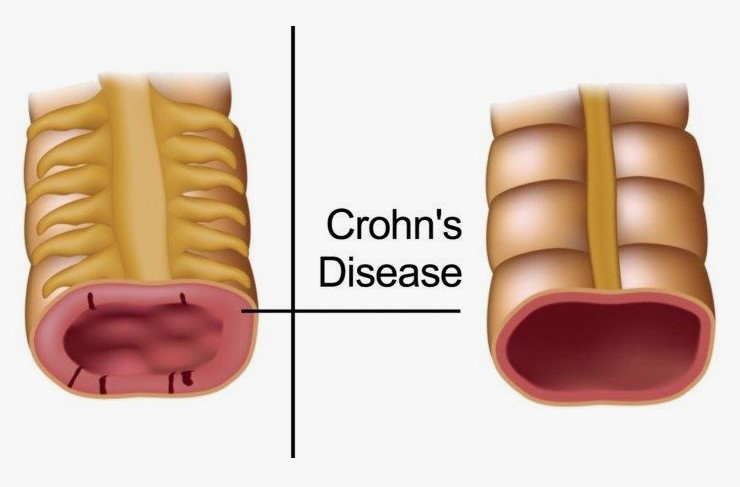
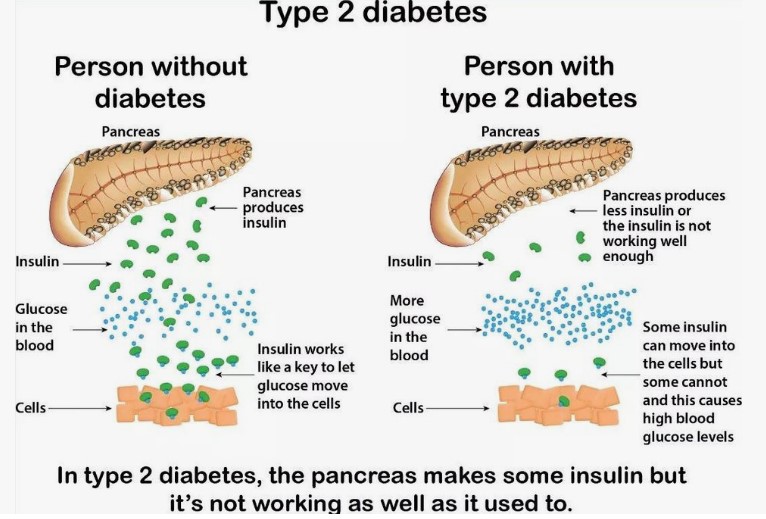




[…] Understanding Leaky Gut Syndrome: Symptoms, Causes, and Proven Solutions […]